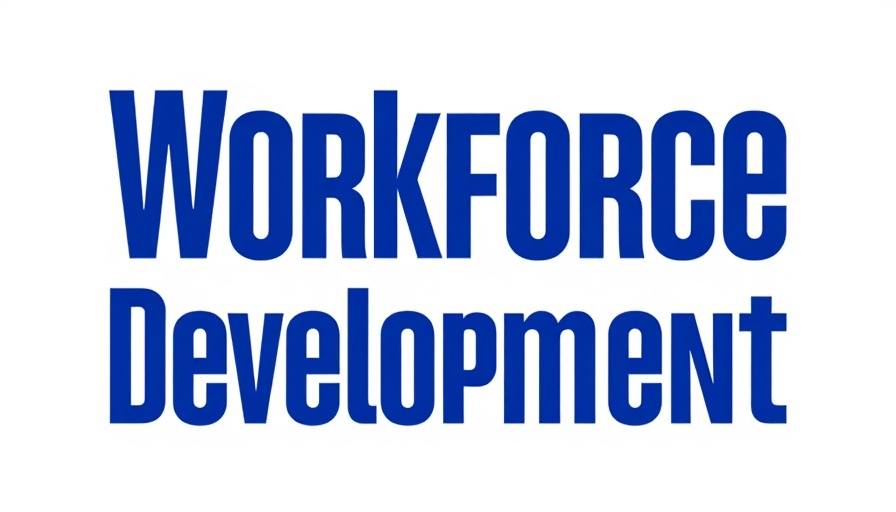
Understanding the Importance of Workforce Mental Health
In our increasingly fast-paced work environments, the mental well-being of employees has emerged as a fundamental pillar of overall workforce health. As articulated by Jinny Rietmann, Executive Director of Workforce Development, Inc., mental health issues must be addressed proactively, especially during Mental Health Awareness Month this May. Recognizing that mental health is not just a personal issue but a workplace imperative is crucial in today's job markets. Companies are starting to realize that a supportive work environment can lead not only to happier employees but also improved productivity and retention rates.
Strategies to Foster Mental Health in the Workplace
Organizations can play a significant role in creating a culture that prioritizes mental health by implementing several key strategies. Firstly, employers must understand their legal obligations to provide reasonable accommodations for mental health needs. This includes ensuring that mental health benefits are available and accessible to all employees. It's essential to encourage employees to advocate for themselves and others, reducing stigma surrounding mental health discussions. Furthermore, building awareness about available mental health resources contributes to creating a more welcoming culture, ultimately enhancing employee morale and cooperation.
Resources Available for Employers
Employers stand on the frontline of mental health support, equipped with various resources to develop effective workplace strategies. Websites like the Department of Labor's mental health at work page provide valuable insights and tools to inspire workplace initiatives that foster mental wellness. Additionally, specific toolkits from national agencies can help tailor approaches to better suit employee needs. Awareness and access to these resources are vital for creating supportive work environments.
The Link Between Employment and Mental Health
Employment significantly impacts mental health; quality jobs contribute to a sense of security and overall well-being. However, 'good jobs' can be interpreted differently by individuals. Initiatives such as upskilling and providing advancement opportunities are essential remedies for enhancing mental health within the workplace. By nurturing talents and ensuring employees feel valued, companies directly contribute to improving their teams' mental well-being.
Cultivating a Positive Workplace Culture
A strong workplace culture rooted in support and positivity can lay the groundwork for mental health development. Rietmann emphasizes the need for systems and leadership that encourage mental well-being. When organizations actively promote healthy discussion about mental health, they create an environment where employees feel comfortable sharing their needs and challenges. As companies engage in fostering such a culture, they can see remarkable benefits in employee satisfaction and productivity.
What Lies Ahead: Future Trends in Workforce Mental Health
The dialogue surrounding mental health is evolving, and companies are recognizing the necessity of adapting to these changes. Future predictions indicate that organizations will need to prioritize mental health initiatives actively. This recognition impacts various sectors, leading to more comprehensive mental health strategies than ever before.
Take Action: Support Mental Health in Your Workplace
This Mental Health Awareness Month, let’s commit to supporting our workforce and mental well-being. By taking a stand and implementing effective strategies, employees and employers can collectively contribute to a healthier work environment. Mental health must no longer be an afterthought but a central factor in developing a thriving workforce.
By understanding these key aspects of mental health support and fostering a proactive culture, employers can create resilient teams that not only survive but thrive in the workplace.
 Add Row
Add Row  Add
Add 




Write A Comment